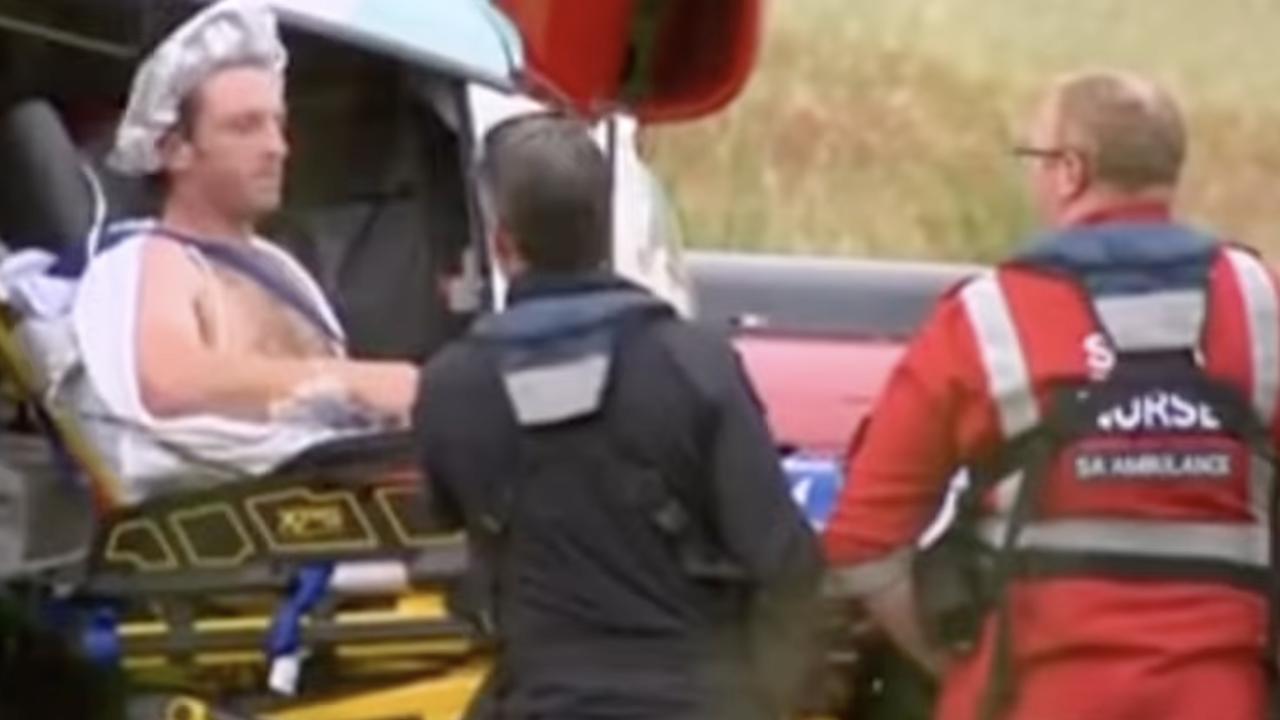Helpless baby monkeys are being sold for $7.20 each at popular Bali tourist sites
Baby monkeys are being sold for less than the cost of a small Big Mac Meal, but tourists trying to save them could make the problem worse.

Helpless baby monkeys are being sold at popular tourist sites in Bali for just $7.20 each.
But well-meaning tourists have been warned not to save them by buying them as they are making the problem worse.
In heartbreaking photos taken by Luke Massey in the market area of Denpasar and Bandung, long-tailed macaque monkeys are chained in cages.
The watch forlornly as people walk by.
Even worse, some are sold to work as cruel tourist attractions.
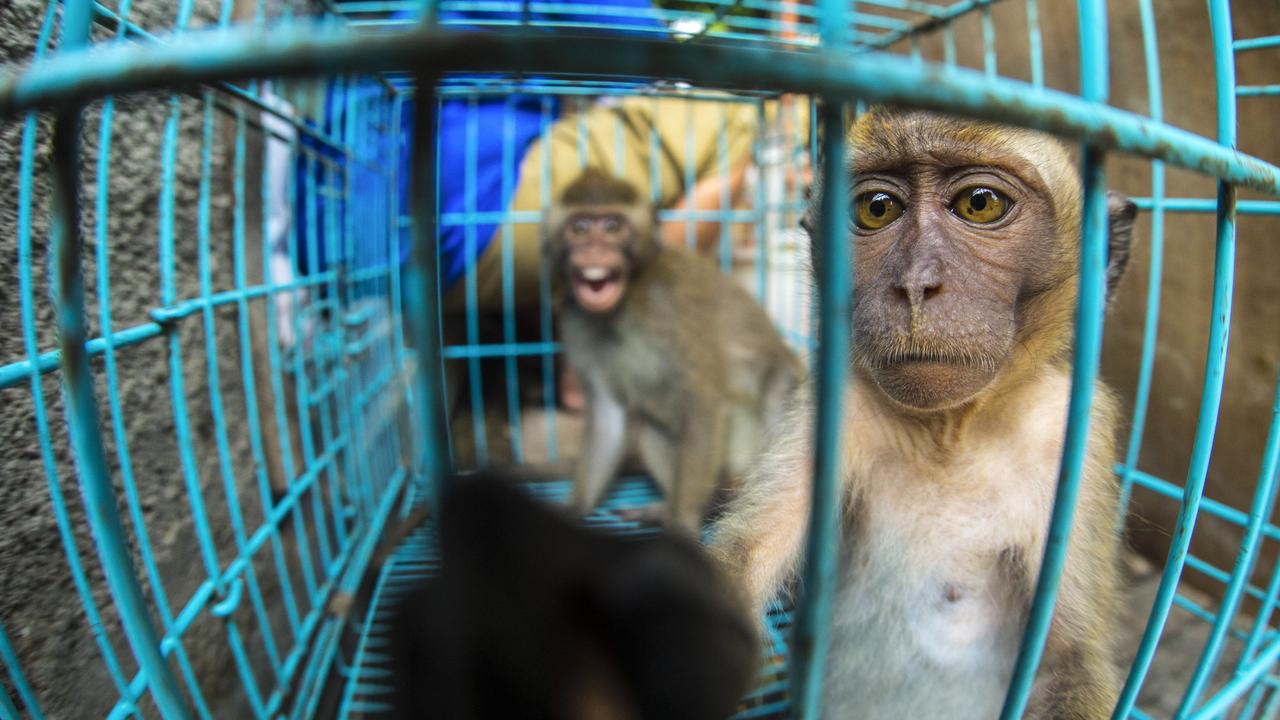
“Long-tailed macaques are the most commonly found monkey for sale in Indonesia’s markets,” Mr Massey explained.
“They are cute looking and easily attainable in the wild relatively close to cities. The demand is mixed.
“Some people buy the monkeys as babies, thinking they will stay cute forever, only to find them turn aggressive once they hit adulthood. Others buy them to train as dancing monkeys.
“These monkeys are often tortured to learn to stand on their feet like humans, being hung just so their toes touch the ground for hours, beaten and starved so that they ride a bicycle or stilts on demand.
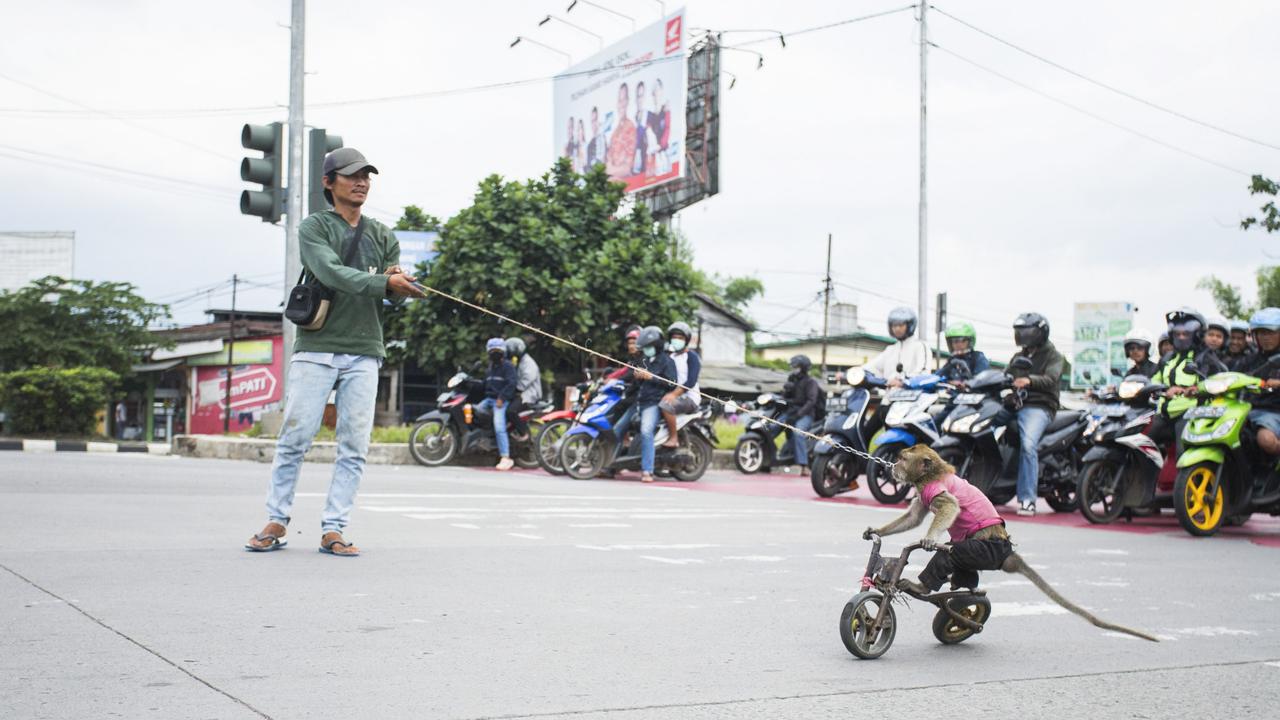
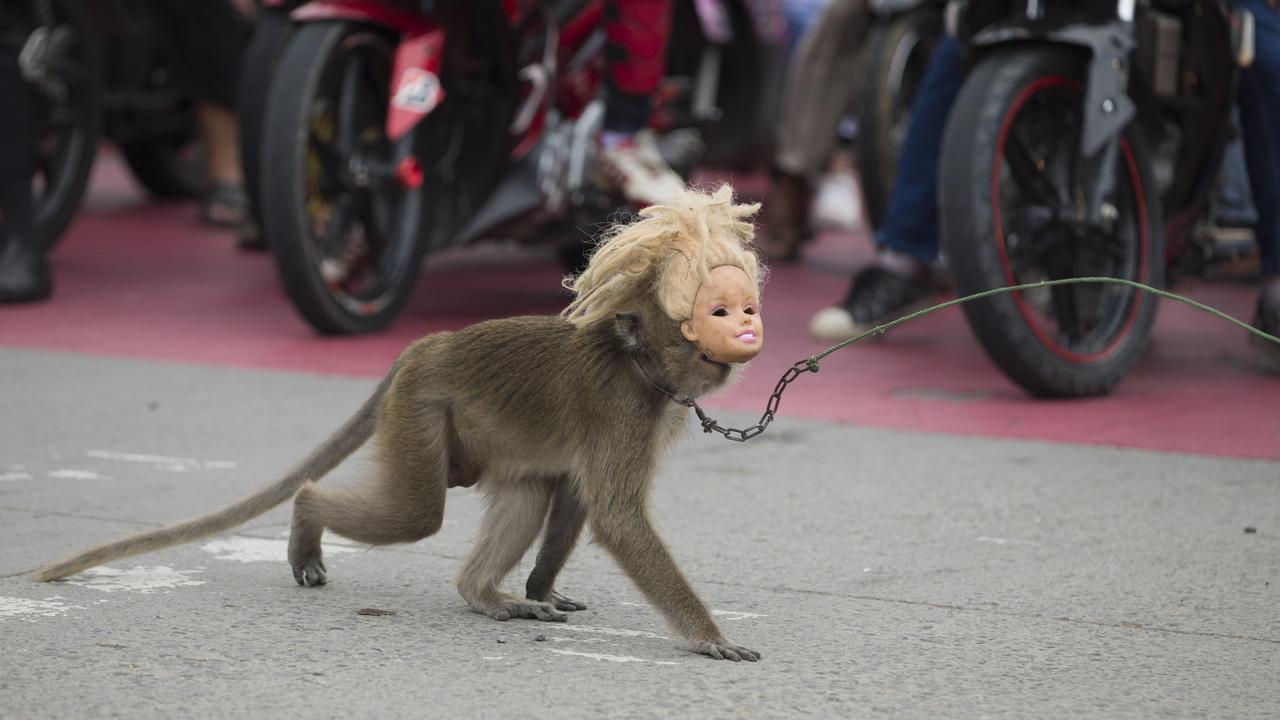
“Once trained they are paraded at traffic lights and busy areas where their owners ask for money after each performance.”
But for tourists who are thinking about saving the monkeys by buying then, the 28-year-old’s advice is don’t.
“Youngsters are left in small cages or chained up once they reach adulthood,” he explained. “Some lucky monkeys are bought by well-meaning tourists to be released or given to organisations but, despite being well meaning, this usually just fuels the trade.”
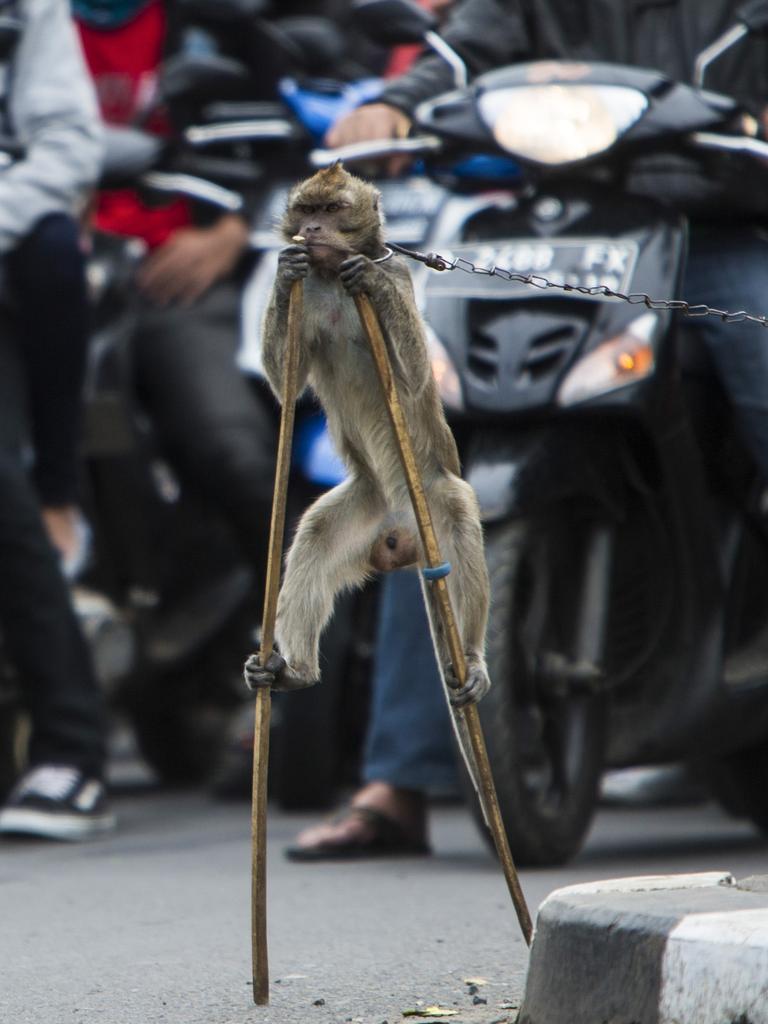
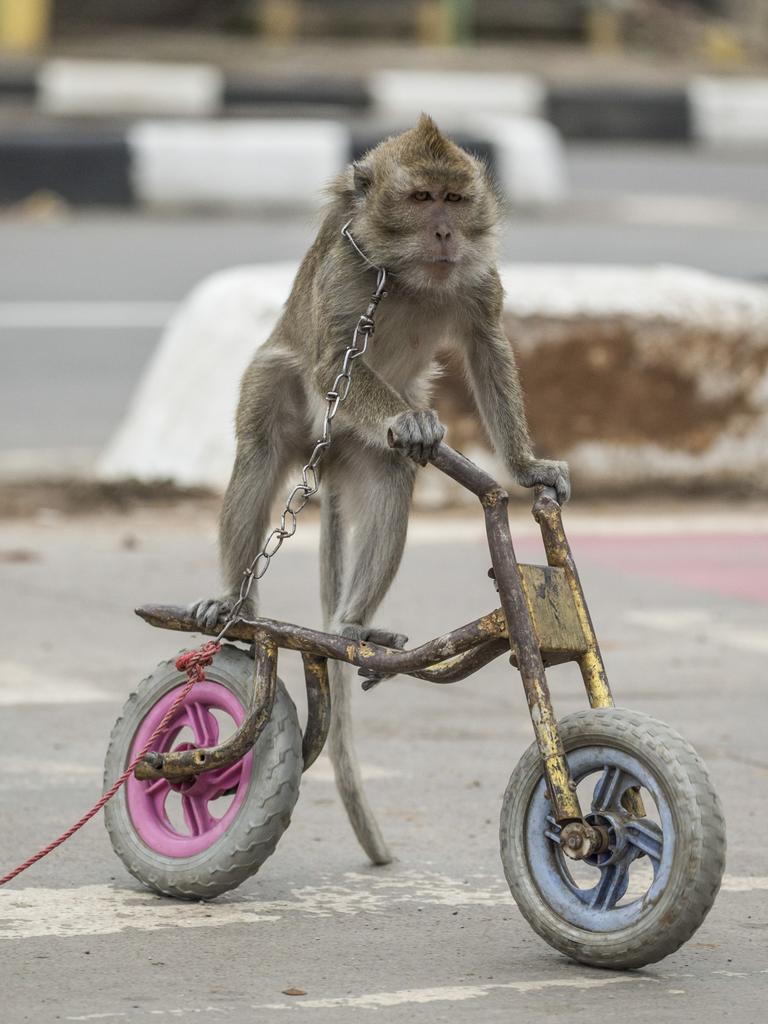
“Seeing a monkey in the wild is a fantastic experience,” the photographer added.
“Seeing them in captivity in the markets is a horrible feeling, seeing their sadness in their eyes while feeling completely helpless as they’re chained up is awful.
“Also knowing they are group animals and they are often kept on their own.”
This article originally appeared on The Sun and was reproduced with permission


